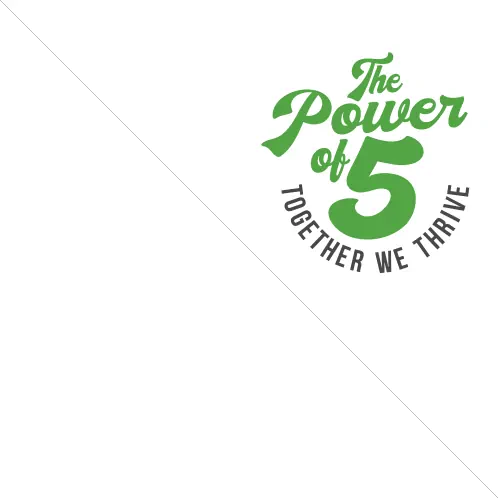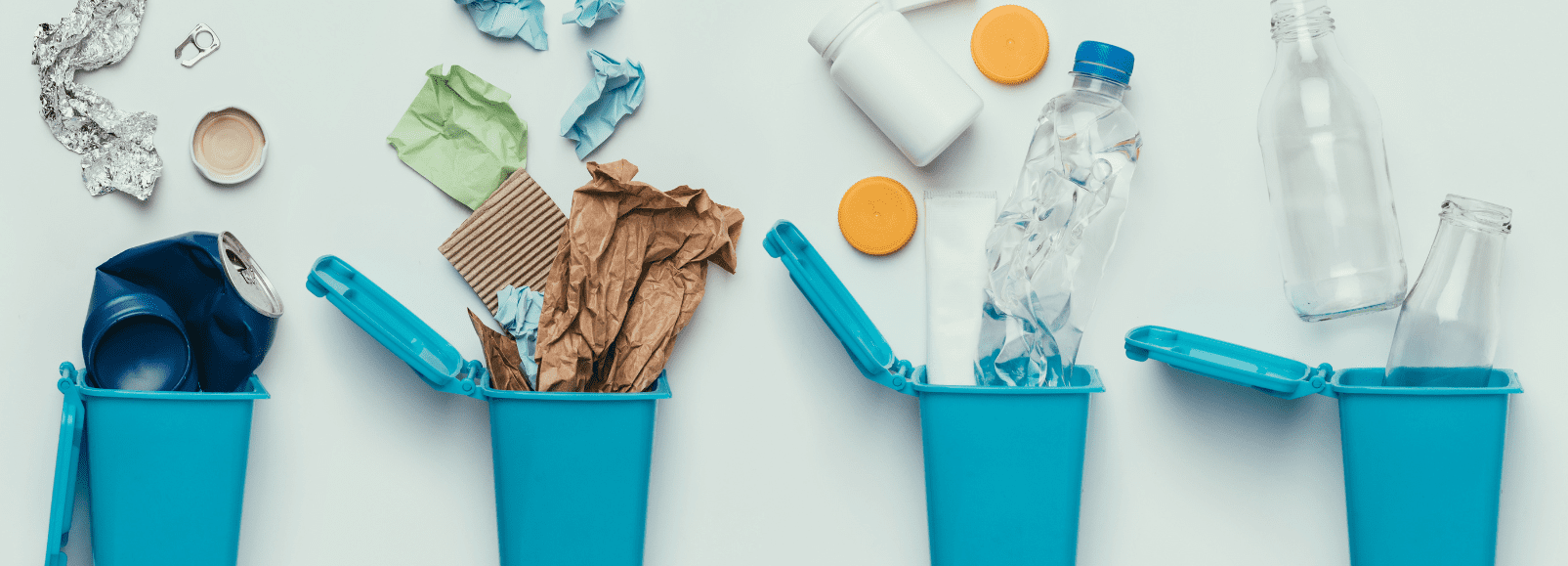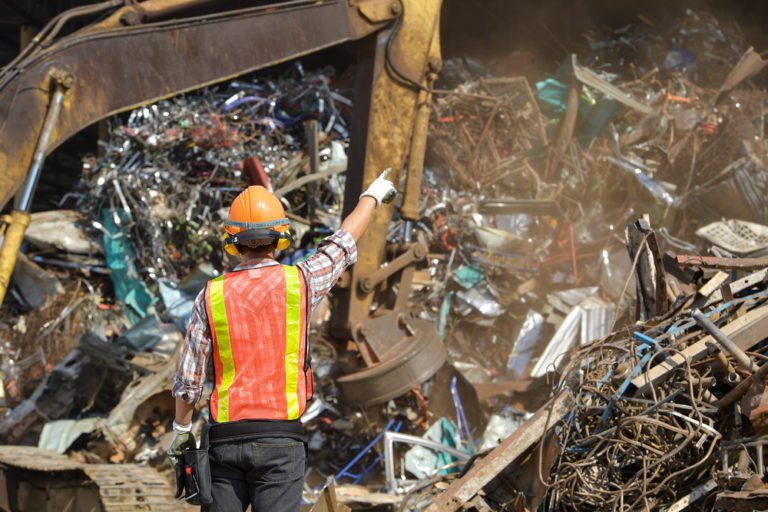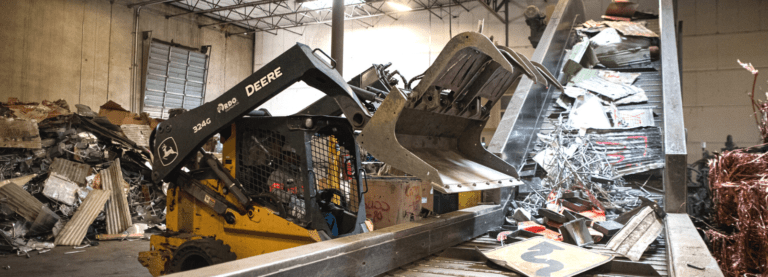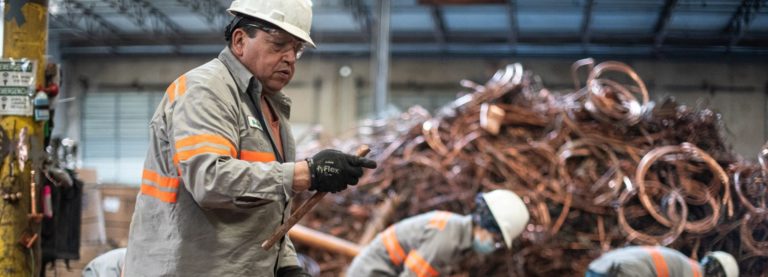Do you know how to help with recycling domestic waste products? The common recycling message says to reduce what you use, reuse what you can, and recycle the rest. But if it’s that simple, why do so many continue to ask, ‘what can I recycle—exactly?’ And what are the proper recycling techniques and processes?
The message is to Refuse, Reduce, Reuse, Repurpose, and Recycle, known as the 5 Rs. It sounds straightforward. Yet, Americans remain unconvinced, according to a Harris Poll for The Institute of Scrap Recycling Industries(ISRI). Recyclable items need proper labeling, and the process should be more convenient to improve success rates, suggests the survey[1].
This short guide cuts through the uncertainty behind recyclables. We explain what you can and can’t recycle and how best to do it. But first, let’s briefly review the 5 Rs and how you can apply them to everyday life.
How to Recycle According to the 5 Rs
You can recover a lot, but not everything can be thrown in the recycling bin. Some products and materials can’t be recycled. In fact, recycling is the last option on the 5 Rs pyramid, so let’s run over what you can do outside recycling to be more green. After that, we look at what you can throw away and how to recycle it in an eco-friendly way.
The 5 Rs pyramid is an excellent green strategy for businesses, but it also works for households. The idea is to reduce the total of trash created and optimize your recycling efforts.
 Step 1: Refuse
Step 1: Refuse
Don’t create trash from stuff you don’t need.
The first step on the 5 Rs pyramid encourages you to think about minimizing waste by refusing harmful products. For example, you can refuse to single-use plastics and other non-recyclable or hard-to-recycle materials (more on that soon). This step is about embracing a more resourceful approach to making smarter buying decisions.
Using reusable grocery bags and ordering from restaurants that use recyclable take-out containers and utensils.
 Step 2: Reduce
Step 2: Reduce
Use all that you need and less of what you want.
It’s not always possible to forgo harmful, non-recyclable materials altogether. But it is possible to lessen your waste by buying less when possible. Try to properly estimate how much you need to purchase, so less unused product will end up in the trash.
Also, you can compost food waste by converting much of it into nutrient-rich fertilizer. Printing on both sides of paper reduces litter, and reusable coffee mugs mean fewer Styrofoam cups in landfills.
 Step 3: Reuse
Step 3: Reuse
Reuse items before discarding them.
Reusing items used to be the norm but over time many products became cheaper to buy new than repair, leading to an emphasis on throw-away culture. But, you can help reverse that.
There are so many items suitable to reuse. Think glassware, certain plastics, wood and paper products, clothing, etc. The internet is awash with people sharing ideas, how to repair common broken items, and swapping tips on innovative ways to get the most life out of everyday items.
 Step 4: Repurpose
Step 4: Repurpose
Repurpose what can’t be refused, reduced, or reused.
Repurposing or upcycling has endless possibilities with a bit of creative thinking. This is a process where you take something intended for one use and later use it for another.
Glass jars, plastic containers, even the humble shoebox offer endless storage opportunities. Worn-out clothes make great rags, and binder clips hold wires neatly in place. There is no end to repurposing stuff that we usually dispose of. Best of all, you help conserve resources while reducing the waste stream and pollution caused by the above.
 Step 5: When and How to Recycle
Step 5: When and How to Recycle
The four prior steps are meant to help you be conscientious about reducing your total waste footprint. When there is no other choice—and there will always be those cases—recycling programs help to reduce the amount of reusable waste that enters landfills. And that includes reusable and repurposed items that reach their end of use. Recycling is an eco-friendly method of waste disposal.
Why Recycling Matters in the US
Every year, the US produces around 292 million tons of trash, otherwise known as municipal solid waste. Of that, 140 million tons end up in landfills. And the average American now tosses out around five pounds of domestic trash daily. The chart below shows the state of US garbage currently comprising landfills [2].
Total US Municipal Solid Waste Landfill by Material Type
Now let’s look at how to prepare and sort your recyclables.
What Can I Recycle: The Easiest Scrap Materials to Recycle
Not all garbage is equal. Some materials are easy to salvage and recycle, offering a high scrap value. Others are much more difficult to recycle or reuse, and then there is your unrecyclable trash.
#1 Scrap Metal
Generally, metals are the easiest to salvage, especially iron and steel (ferrous), and non-ferrous metals and alloys like aluminum, copper, and brass. The scrap industry recycles both ferrous and non-ferrous metals. And, most metals can be reused indefinitely without any loss to their properties. That makes this type of scrap highly attractive for processing.
| Steel Recycling Fact The US recycles more steel yearly than aluminum, glass, paper, and plastic scrap combined [3]. |
Ferrous (magnetic) metals are strong and durable and include:
- Engineering steel
- Stainless steel
- Carbon steel
- Wrought iron
- Cast iron
Example uses of ferrous metals: Industrial piping, major construction projects, railroad tracks, shipping containers, trucks, automobiles, and tools.
Non-ferrous(nonmagnetic) metals:
- Lead
- Zinc
- Copper
- Aluminum
- Aluminum alloys
- Brass
- Tin
Example uses of non-ferrous metals: Vehicle engines, pipelines, construction use, wiring, containers, electronics, and cans.
How to Recycle Your Scrap Metal at a Recycling Drop-off Facility
GEOMET’S local recycling facility in Garland and Farmers Branch, Texas, buys & sells metal scrap at the best prices. Our friendly consumer recycling makes it easy for you to dispose of your scrap metal ethically. That includes construction, home renovations, appliances, e-waste, and even your aluminum automobile wheels.
Learn More About GEOMET Recycling Buy & Sell Here
#2 Paper and Cardboard
Paper and cardboard are pretty easy materials to recycle. But, currently, too much of it ends up in landfills and recycling plants before its time. Each year, an average American gets through 650 pounds of paper. That includes paper bags, paper packaging, cups, and other paper products. But not all paper is suitable, and the right type must be free from contamination [4].
These materials have seen a jump in total waste percentage through the popularity of online shopping.
| ! HARDEST PAPER TO SALVAGE |
| Parchment, wax, and shredded paper |
The table below highlights paper products that can and cannot be recycled:
| RECYCLABLE PAPERS | NONRECYCLABLE PAPERS |
| – White and colored office sheets – White computer paper – Glossy type (without plastic coating) – Newspaper, – Cardboard (without metal) – Center roll of toilet paper – Magazines – Catalogs, manuals, and booklets – Phone books | – Paper towels – Napkins – Toilet tissue – Sanitary towels & other sanitary products – Waxed and coated – Thermal, e.g., receipts – Stickers and sticky paper – Gift wrap – Juice and milk cartons |
It can be difficult to intuit what types of paper are and are not recyclable. What paper products have you mistakenly tried to recycle, or didn’t know you could recycle?
#3 Glass – Easily Recyclable with an Unlimited Life
Like with most metals, we can also recycle many glass products infinitely, so it has no place in landfills. The recovered glass makes items such as fiberglass, new sand, containers, and other utensils. The most accepted glass items for recycling are food & beverage containers, jars, and bottles.
Things not typically accepted for recycling include broken glass, windows, mirrors, drinking vessels, and ceramics [5].
| ! HARDEST GLASS TO SALVAGE |
| Drinking vessels, cooking vessels, Pyrex, and mirrors |
All your recyclables should be rinsed clean before being placed in the recycling bin, not just glass. Food, grime, and liquid residue can make your deposited items unable to be recycled. Worse yet, they can contaminate other clean recyclables in the bin.
#4 Recycled Concrete
The US construction industry knows how to recycle old concrete over and over, which reduces costs and waste. Reusing concrete means less construction aggregate in landfill sites and reduced transportation costs. Crushing used concrete produces small pieces that are machine-pressed to remove any glass, dirt, and other impurities.
The end product is a clean, high-grade, durable aggregate suitable for road use, sidewalks, etc. For these reasons, in the US alone, around 140 million tons of concrete get reused yearly [6].
#5 Organic Recycling
So much wasted food reaches landfill sites and incinerators. Composting is an excellent way to dispose of food leftovers and organic matter.
How to Recycle Your Organic Waste
Organic waste is any biodegradable material from plants and animals that rot over time. Some lesser-known materials you can turn into compost include newsprint, cardboard, and greasy used pizza boxes. You can even add 100% natural fiber textiles like cotton and wool.
The end product is an all-natural fertilizer filled with plant nutrients that retains moisture and prevents soil erosion. Organic waste includes green, garden matter, and non-hazardous foods. Think vegetables, baked goods, eggs (and egg cartons), and dairy products. You can also add tea leaves or tea bags, coffee grounds, and paper filters to your composting endeavors.
Composting Options
There are several options if you don’t have a garden for your composting. You can learn how to recycle organic waste indoors within minutes. Sealed-worm and electric composters work well inside without giving off bad smells.
| ! HARDEST ORGANIC MATERIAL TO SALVAGE |
| Keep animal excrement and animal litter out of the compost. |
The Most Difficult Materials to Recycle
Various other materials can be recycled, but the processes are far from easy. This last section looks at two of the most troublesome.
Plastics (All Forms)
Plastics are the hardest of all materials to salvage as there are many variations, all with different properties. Some are recyclable, others are not, and there are no standard processes.
Even more, the recyclable stuff is a low-value product due to its limited life. It’s also highly toxic. Thus, the best way to reduce plastic waste is to use less of it, especially single-use products, and repurpose what you can [7].
| ! HARDEST DENSE PLASTICS TO SALVAGE |
| Cotton buds, toothbrushes, disposable razors, pens, tampon applicators, floss. |
Plastic Recycling Issues
There are many types of plastics with mixed ingredients used in consumer items. These are particularly difficult to recycle because the materials must first be isolated to process. Also, some modern materials contain different constituents, used to create new products and plastic packaging [8].
Electronic Waste
Much electronic or e-waste contains valuable metals like copper, gold, silver, and platinum. Despite that, few consumers learn how to recycle electronics. That’s because getting to those precious materials is nearly impossible without the proper equipment and know-how.
Unfortunately, disused electronics are surrounded by toxic materials. That makes it extremely difficult to separate the good stuff from the hazardous.
How to Deal with e-Waste
There are three ways for regular consumers to deal with e-waste. First, if the product still works, see if you can trade it in if you are going for an upgrade. Alternatively, donate the item to a charity rather than discard it. And if the product is no longer working, use a third-party recycler like GEOMET- salvage your electronic scrap.
E-waste is not the only hazardous trash to be cautious of.
| ! HARDEST HAZARDOUS WASTE TO SALVAGE |
| Light bulbs, batteries, liquid chemicals, clinical waste, menstrual pads, tampons, and disposable diapers |
How to Recycle Your Domestic Trash
Follow the six tips below to sort and prepare your everyday household trash for recycling. This section assumes you have your colored recycle bins ready. And for larger appliances with lots of metal, take them to a drop-off center like GEOMET.
Home Sorting Tips
1) Empty & Rinse to remove food remnants and liquids from recyclable containers. Remember, soiled items are non-recyclable, and they soon start to smell.
2) Keep Stuff Loose as workers and machines cannot sort tightly stacked or packed recyclable items on conveyor belts. Also, plastic bags may clock up machinery.
3) Remove and Discard All Tops as they’re made of a different plastic than the bottles and may result in cross-contamination. And metal caps may clog machinery [9].
4) Recycle Clean Plastic Containers with numbers 1, 3, and 5 inside a triangle. If your recycling bin doesn’t say what number plastics it accepts, contact your local authority for confirmation.
5) DO NOT Flatten Plastic Bottles as automated sorters may treat them as paper products. Thus, unsquashed bottles are easier to sort.
6) DO Flatten Cardboard Boxes and Containers to save space.
Got Salvageable Waste?
Have GEOMET deliver our”Roll-Off” bins and hoppers directly to your location and pick them up once full. GEOMET’S Roll-Off bins and hoppers also offer an excellent revenue solution for managing large amounts of ferrous and non-ferrous metal waste for construction and renovation work.
Resource Links
- https://www.isri.org/recycle-needs-to-be-easier/
- https://www.epa.gov/US-trash-waste-per-year/
- https://www.nationalmaterial.com/steel-and-recycling-facts/
- http://web.mit.edu/American-paper-waste/
- https://www.conserve-energy-future.com/can-you-recycle-broken-glass.php
- https://www.cement.org/recycled-concrete-US/
- https://www.waste360.com/recycling/why-plastic-recycling-so-difficult
- https://inews.co.uk/recycling-mixed-up-plastics/
- https://www.scientificamerican.com/article/recycling-plastic-bottle-caps/


